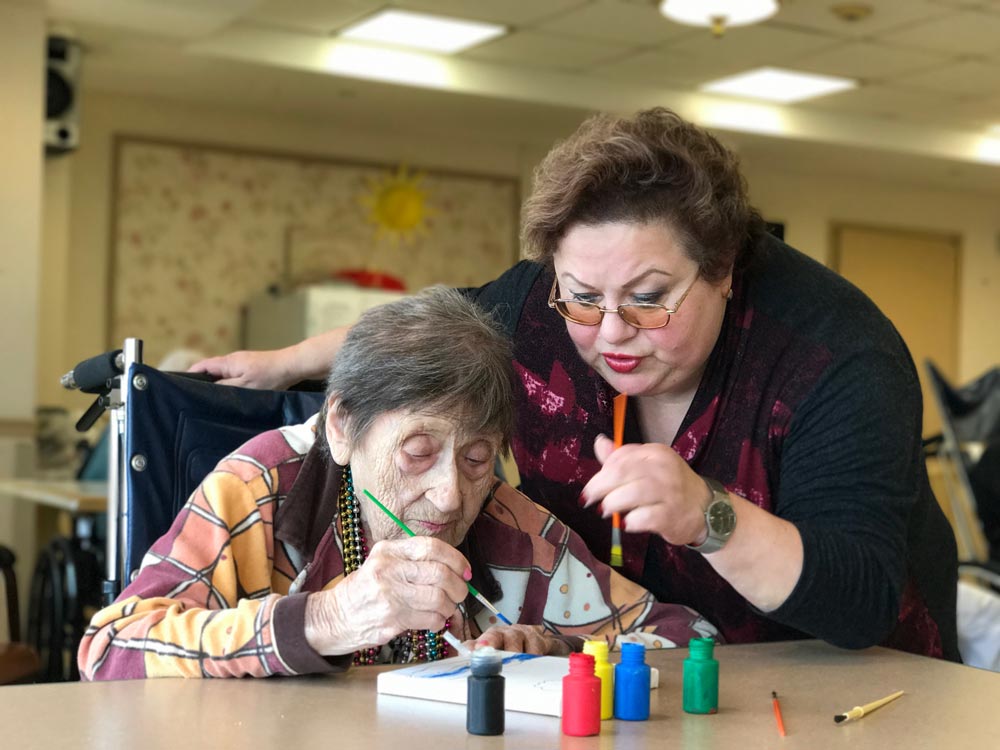Reliable Mental Deterioration Treatment Approaches for a Better Lifestyle
In the world of dementia treatment, the implementation of efficient techniques is crucial for enhancing the quality of life for both people influenced by the disease and their caretakers. Recognizing the distinct stages of dementia permits for customized treatments that deal with the advancing requirements of clients-- from advertising cognitive interaction in the very early stages to guaranteeing self-respect in late-stage care.
Understanding Dementia Phases

In the onset, people might experience moderate amnesia and problem with acquainted jobs. Care techniques need to concentrate on preserving self-reliance and providing cognitive stimulation. The middle stage is characterized by boosted confusion, problem acknowledging liked ones, and impaired judgment. During this phase, caretakers must apply structured regimens and ensure a secure atmosphere. Ultimately, in the late phase, people may lose the ability to connect and need aid with day-to-day activities. Below, compassionate treatment is vital, stressing convenience and dignity.
Identifying these stages allows caregivers to adapt their strategies and give support that aligns with the individual's current requirements, ultimately helping with much better management of the problem and enhancing the total caregiving experience. Understanding mental deterioration stages is therefore a fundamental element of effective dementia care.
Communication Techniques
Effective interaction is a crucial part of mental deterioration treatment, especially as the illness advances through its different phases. As cognitive abilities decline, it becomes important to adapt interaction methods to fulfill the demands of individuals with dementia. Utilizing clear, easy language is critical; caretakers should avoid complicated sentences and lingo, choosing rather for uncomplicated, succinct expressions.
Non-verbal interaction plays a similarly significant function. Faces, gestures, and intonation can share warmth and understanding, frequently improving spoken messages. Keeping eye contact and an open posture cultivates a sense of link and safety, urging people with mental deterioration to engage even more completely in discussions.
It is additionally beneficial to hold your horses and permit ample time for reactions. Individuals might require additional time to procedure information and create their thoughts. If comprehension appears doing not have., duplicating or putting in other words questions might be required.
Last but not least, concentrating on the individual's passions and individual background can assist in a lot more significant interactions. Engaging in acquainted topics can stimulate positive memories and emotions, further enhancing the communication experience (dementia care charlotte). By using these techniques, caretakers can dramatically improve the quality of communications, advertising dignity and regard for people living with dementia
Creating a Safe Environment
Creating a safe atmosphere for individuals with dementia is essential to promoting their health and self-reliance. A properly designed room can considerably minimize the dangers of mishaps and enhance the quality of life for those impacted by this condition.
Lighting plays a Your Domain Name vital role also; utilizing natural light any place possible and including evening lights can help individuals browse their surroundings securely. In addition, classifying spaces and crucial items can assist memory and positioning, minimizing confusion and anxiousness.
It is also crucial to produce a familiar environment by customizing the room with pictures or treasured products, which can evoke positive memories and a sense of belonging.
Including furnishings that is both comfortable and useful adds to an encouraging ambience, enabling individuals to involve in day-to-day tasks easily. Eventually, a risk-free setting not only safeguards against physical threats yet also fosters a complacency, which is essential for the emotional wellness of those living with mental deterioration.
Involving Regimens and tasks
Engaging activities and organized regimens are essential elements in the treatment of individuals with dementia, as they advertise cognitive function, psychological security, and social interaction. These tasks visit the site ought to be customized to the person's interests, capabilities, and phase of cognitive decline. memory care facilities charlotte. Simple, recurring jobs such as gardening, crafts and arts, or cooking can give meaningful interaction, permitting individuals to utilize their abilities while fostering a sense of accomplishment
Establishing a daily regimen helps produce a foreseeable setting, which can lower anxiousness and complication. This framework can consist of assigned times for meals, activities, and remainder, making certain a balanced technique to life. Integrating social interactions right into these routines, such as group activities or visiting family members, further enhances emotional wellness and deals with feelings of isolation.
Additionally, exercises, such as walking or dancing, not only advertise physical health and wellness however also promote mental engagement. Encouraging involvement in neighborhood occasions or assistance teams can offer extra possibilities for socialization. Generally, the integration of structured routines and engaging tasks is vital in improving the find quality of life for individuals with mental deterioration, promoting freedom and dignity while resolving their distinct needs.
Supporting Caretaker Well-Being
Taking care of individuals with mental deterioration can be a requiring and psychologically tiring experience, making it critical to focus on the well-being of caretakers. Caregivers often deal with high levels of stress, anxiousness, and physical fatigue, which can bring about exhaustion otherwise addressed appropriately. To support their health, it is vital to implement a complex approach.
First, supplying caregivers with access to education and learning and sources can empower them with approaches to handle everyday obstacles. Support groups, both in-person and online, offer a platform for sharing experiences, promoting a sense of community, and lowering feelings of seclusion. Furthermore, break treatment solutions make it possible for caregivers to take required breaks, allowing them time to participate in and charge to their own health requirements.
In addition, urging caretakers to involve in self-care practices-- such as routine exercise, healthy consuming, and mindfulness-- can significantly boost their resilience. Advertising open communication regarding their feelings and challenges with member of the family or experts likewise helps minimize psychological worries.
Conclusion
To conclude, reliable dementia care strategies encompass a detailed understanding of the condition's phases, the application of clear communication strategies, the facility of a risk-free setting, and the promotion of organized routines and interesting activities. Furthermore, prioritizing the health of caregivers is important to maintaining quality care. By integrating these techniques, the total lifestyle for individuals with mental deterioration can be significantly boosted, cultivating a helpful atmosphere that promotes dignity and psychological wellness.
In the world of mental deterioration care, the application of reliable strategies is important for improving the high quality of life for both people influenced by the illness and their caretakers. By employing these methods, caretakers can significantly boost the top quality of interactions, advertising dignity and regard for people living with dementia.

Caring for individuals with mental deterioration can be a requiring and mentally tiring experience, making it vital to prioritize the wellness of caretakers.